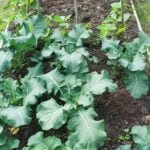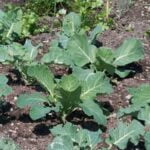What kind of compost is best for vegetable gardens? Choosing the right type of compost is crucial for the health and productivity of your vegetable plants. Compost plays a vital role in providing essential nutrients, improving soil structure, and promoting overall plant health. Understanding the different types of compost available and their benefits can help you make an informed decision for your vegetable garden.
Using compost in vegetable gardens offers a multitude of benefits. Not only does it provide essential nutrients for plant growth, but it also helps improve soil fertility, retain moisture, and suppress diseases. Additionally, using compost can enhance the flavor and nutritional value of vegetables, making them more enjoyable to eat. With the numerous advantages that compost offers, it’s important to explore the different types available to find the best fit for your garden’s needs.
When it comes to choosing the best compost for your vegetable garden, there are various options to consider. From homemade compost to manure-based compost and leaf mold, each type has its own set of pros and cons.
Understanding these differences can help you determine which type of compost will work best for your specific gardening goals. In this article, we’ll delve into the various types of compost available for vegetable gardens and discuss how each option can benefit your plants.
Types of Compost for Vegetable Gardens
When it comes to choosing the best compost for vegetable gardens, there are several types of compost to consider. Each type has its own set of pros and cons, and understanding the differences can help gardeners make the best decision for their specific gardening needs.
Homemade Compost
One of the most popular options for vegetable gardens is homemade compost. This type of compost is made from kitchen scraps, yard waste, and other organic materials that are decomposed over time to create nutrient-rich soil amendment.
The advantages of homemade compost include its cost-effectiveness and the ability to control the quality of the materials used. However, it’s important to note that making homemade compost requires time, effort, and proper maintenance to ensure that it reaches optimal maturity for use in the garden.
Manure-Based Compost
Another common type of compost suitable for vegetable gardens is manure-based compost. This type of compost is made from animal manure mixed with other organic materials. Manure-based compost is known for its high nutrient content, making it a valuable addition to soil fertility. However, it’s essential to properly age and cure manure-based compost before using it in vegetable gardens to avoid potential health risks associated with fresh manure.
Leaf Mold
Leaf mold is a type of compost made exclusively from decomposed leaves. It offers an excellent source of organic matter and has a light texture that improves soil structure and water retention. Leaf mold also helps enhance beneficial microbial activity in the soil, promoting overall plant health. While leaf mold may take longer to decompose compared to other types of compost, it’s a sustainable way to recycle fallen leaves from the yard while providing numerous benefits to vegetable plants.
Understanding the different types of compost available for vegetable gardens can help gardeners make informed decisions about which option will best meet their specific gardening needs. Whether opting for homemade compost, manure-based compost, or leaf mold, each type offers unique benefits that contribute to healthy and productive vegetable plants.
Benefits of Using Organic Compost
Improvement of Soil Fertility
Using organic compost in vegetable gardens can significantly improve soil fertility. Organic compost contains a wealth of nutrients and beneficial microorganisms that enrich the soil, providing essential elements for plant growth.
When added to the soil, organic compost helps to balance its pH levels, which is crucial for the optimal uptake of nutrients by vegetable plants. Additionally, the organic matter in compost improves soil structure, allowing for better water retention and aeration, ultimately creating an environment conducive to healthy root development.
Promotion of Healthy Plant Growth
Organic compost plays a vital role in promoting healthy plant growth in vegetable gardens. By providing a steady supply of nutrients to plants, compost ensures that vegetables have access to the necessary components for robust development.
Furthermore, the microbial activity present in organic compost aids in suppressing diseases and pathogens that may harm vegetable plants. This natural protection helps to maintain the overall health of the garden ecosystem, reducing the need for chemical interventions and fostering sustainable and eco-friendly gardening practices.
Environmental Benefits
In addition to its positive impact on soil fertility and plant growth, using organic compost offers environmental benefits. By recycling organic waste materials into nutrient-rich compost, gardeners contribute to waste reduction and promote sustainability. Organic composting also reduces reliance on synthetic fertilizers and pesticides which can have adverse effects on ecosystems and water sources. Overall, incorporating organic compost into vegetable gardens supports environmentally-friendly practices while yielding healthier produce.
How to Make Homemade Compost
When it comes to providing the best nutrients for your vegetable garden, homemade compost can be a cost-effective and sustainable option. Making your own compost not only reduces waste but also allows you to control the ingredients and quality of the compost for your garden. Here is a step-by-step guide on how to make homemade compost for your vegetable garden:
1. Choose the right location: Select a suitable spot in your backyard or garden for your compost pile or bin. Ensure that it is easily accessible and receives adequate sunlight and drainage.
2. Gather the materials: Collect green and brown organic materials such as fruit and vegetable scraps, coffee grounds, eggshells, grass clippings, leaves, straw, and small branches.
3. Build the compost pile: Begin by layering the green and brown materials in alternating layers. Aim for a good mix of nitrogen-rich (green) materials and carbon-rich (brown) materials to maintain a balanced compost pile.
4. Add water and turn the pile: Keep the compost moist by watering it occasionally, but be careful not to make it too wet. Turn or aerate the compost pile every few weeks to speed up the decomposition process.
5. Let it decompose: Allow the natural decomposition process to take place over several months. As long as you maintain the right balance of green and brown materials, keep it moist, aerate it regularly, and provide warmth through sunlight, you should end up with nutrient-rich compost that will benefit your vegetable garden.
By following these steps, you can create high-quality homemade compost that will nourish your vegetable plants with essential nutrients while minimizing waste in an environmentally friendly way. Homemade compost is an excellent option for sustainable gardening practices and can significantly contribute to healthier soil and bountiful harvests in your vegetable garden.
Choosing the Right Compost for Specific Vegetables
When it comes to choosing the right compost for specific vegetables, it’s important to consider the unique needs of each type of plant. Different vegetables have different requirements when it comes to soil fertility and structure. Here are some recommendations for the best types of compost for common vegetable plants:
- Tomatoes: Tomatoes thrive in soil that is rich in organic matter, so a well-balanced homemade compost or manure-based compost can be beneficial for tomato plants. These types of composts can help promote healthy root development and improve the overall productivity of tomato plants.
- Lettuce: Lettuce prefers a light and fertile soil, so leaf mold or homemade compost consisting of a mix of grass clippings and other green materials can be ideal for this leafy green vegetable. These types of composts can provide the necessary nutrients while maintaining good drainage in the soil.
- Peppers: Peppers benefit from a nutrient-rich soil, making manure-based compost an excellent choice for these vegetables. The high nitrogen content in manure-based compost can support healthy foliage growth and fruit production in pepper plants.
It’s important to note that while these are general recommendations, individual gardening practices and local soil conditions may require slight adjustments. Conducting a soil test before applying any type of compost can provide valuable insights into the specific needs of your vegetable garden.
By choosing the right type of compost for specific vegetables, gardeners can ensure that their plants receive the necessary nutrients and support for optimal growth and productivity. Whether using homemade compost, manure-based compost, or leaf mold, selecting the best compost for each type of vegetable can make a significant difference in the overall success of a vegetable garden.
Tips for Using Compost in Vegetable Gardens
Incorporating compost into vegetable gardens is essential for promoting healthy plant growth and improving soil fertility. There are several tips that gardeners can follow to effectively use compost in their vegetable gardens. One important tip is to ensure that the compost is well-aged before applying it to the garden. Well-aged compost has decomposed sufficiently, which means it won’t burn the plants and provides a good balance of nutrients.
Another tip for using compost in vegetable gardens is to mix it with the existing soil at the time of planting. This helps distribute the nutrients throughout the soil, providing an optimal environment for plant roots to thrive. Additionally, applying a layer of compost as mulch around plants can help retain moisture, suppress weeds, and gradually release nutrients into the soil.
It’s important to remember that while compost is beneficial for vegetable gardens, it should be used in moderation. Over-application of compost can lead to nutrient imbalances and potentially harm plant growth. Following these tips can help gardeners make the most of their compost in vegetable gardens, leading to healthier and more productive crops.
| Tips for Using Compost | Benefits |
|---|---|
| Ensure well-aged compost | Helps balance nutrients and prevent burning plants |
| Mix with existing soil | Distributes nutrients throughout soil for optimal root growth |
| Use as mulch | Retains moisture, suppresses weeds, and releases nutrients gradually |
| Avoid over-application | Prevents nutrient imbalances and potential harm to plant growth. |
Common Mistakes to Avoid When Using Compost
When using compost in vegetable gardens, there are certain common mistakes that gardeners should be aware of in order to optimize plant growth and overall garden health. One common mistake is the use of immature compost. Immature compost can actually harm plants because it may contain phytotoxins that can inhibit seed germination and plant growth. It’s important to ensure that the compost is fully matured before using it in the vegetable garden.
Another mistake to avoid is overapplication of compost. While compost is beneficial for soil fertility, using too much can actually have negative effects on plant growth. Excessive application of compost can lead to nutrient imbalances and salt buildup in the soil, which can be detrimental to vegetable plants. It’s important to carefully measure and apply the appropriate amount of compost based on the specific needs of the vegetables being grown.
Furthermore, neglecting to properly mix the compost into the soil is another common mistake that gardeners make. Simply layering a thick covering of compost on top of the soil without adequately mixing it in can lead to uneven distribution of nutrients and hinder root development. It’s essential to thoroughly incorporate the compost into the soil to ensure that its benefits are fully utilized by the vegetable plants.
When using compost in vegetable gardens, it’s crucial to be mindful of these common mistakes in order to achieve optimal results in terms of plant growth and overall garden productivity.
| Common Mistake | Impact |
|---|---|
| Use of immature compost | Can inhibit seed germination and plant growth |
| Overapplication of compost | Can lead to nutrient imbalances and salt buildup |
| Neglecting proper mixing | Can result in uneven distribution of nutrients and hinder root development |
Conclusion
In conclusion, the type of compost used in vegetable gardens can significantly impact the health and productivity of the plants. The decision on which type of compost to use should be based on the specific needs of the garden, the types of vegetables being grown, and the existing soil conditions.
Homemade compost, manure-based compost, leaf mold, and other organic options all have their own benefits and drawbacks, so it’s important for gardeners to weigh these factors when making their choice.
Additionally, organic compost has been shown to improve soil fertility and promote healthy plant growth. By choosing organic options, gardeners can ensure that their vegetables are not exposed to harmful chemicals or synthetic fertilizers. This is especially important for those who prioritize growing healthy and natural produce for themselves and their families.
In order to make the most out of compost in vegetable gardens, it’s crucial for gardeners to carefully consider the application methods and timing. It’s also essential to be aware of common mistakes that can occur when using compost in vegetable gardens so that they can be avoided. Ultimately, by choosing the best compost for their specific needs and following best practices in application, gardeners can create thriving vegetable gardens filled with healthy and bountiful produce.
Frequently Asked Questions
What Is the Best Compost to Grow Vegetables?
The best compost to grow vegetables is one that is rich in organic matter and nutrients, such as nitrogen, phosphorus, and potassium. Compost made from a variety of materials, like kitchen scraps, yard waste, and manure, can provide a well-rounded nutrient profile for vegetables.
Look for compost that has been properly decomposed and stabilized to avoid any potential issues with plant growth.
What Compost Is Safe for Vegetable Garden?
When it comes to choosing a safe compost for a vegetable garden, it’s important to consider the source of the materials used in the compost. Avoid using any compost that contains chemicals or toxins that could potentially harm your vegetables or contaminate your soil.
It’s best to opt for compost made from organic materials and from trusted sources to ensure it’s safe for your vegetable garden.
What Is the Best Compost for Vegetable Garden Raised Beds?
The best compost for vegetable garden raised beds is one that will promote healthy root development and provide essential nutrients for the plants. Look for a balanced mix of green and brown organic materials in the compost to ensure a good nutrient balance.
Additionally, consider using compost with a fine texture that will help retain moisture and support good soil structure within the raised beds. This will promote healthy growth and production of vegetables in your garden beds.

If you’re looking to get into vegetable gardening, or are just looking for some tips on how to make your current garden better, then you’ve come to the right place! My name is Ethel and I have been gardening for years. In this blog, I’m going to share with you some of my best tips on how to create a successful vegetable garden.





